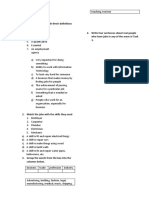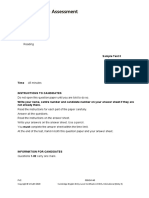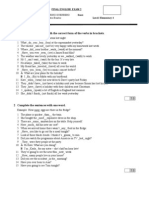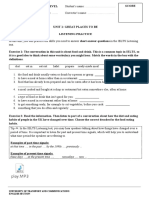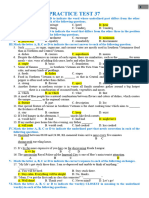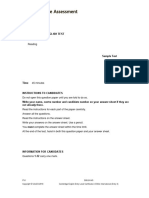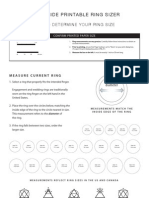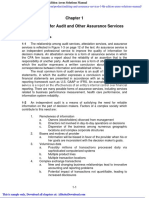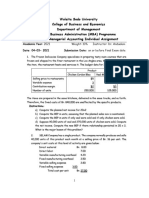0% found this document useful (0 votes)
4K views10 pagesTest Ingles
The document outlines a psychometric test designed to assess English language comprehension skills, including reading, listening, vocabulary, and grammar. It consists of 60 multiple-choice questions with no time limit, and the test can only be taken once. The test's development involved experts in language teaching and psychometrics to ensure its effectiveness in evaluating linguistic competencies.
Uploaded by
Jenifer DiazCopyright
© © All Rights Reserved
We take content rights seriously. If you suspect this is your content, claim it here.
Available Formats
Download as PDF, TXT or read online on Scribd
0% found this document useful (0 votes)
4K views10 pagesTest Ingles
The document outlines a psychometric test designed to assess English language comprehension skills, including reading, listening, vocabulary, and grammar. It consists of 60 multiple-choice questions with no time limit, and the test can only be taken once. The test's development involved experts in language teaching and psychometrics to ensure its effectiveness in evaluating linguistic competencies.
Uploaded by
Jenifer DiazCopyright
© © All Rights Reserved
We take content rights seriously. If you suspect this is your content, claim it here.
Available Formats
Download as PDF, TXT or read online on Scribd
/ 10




